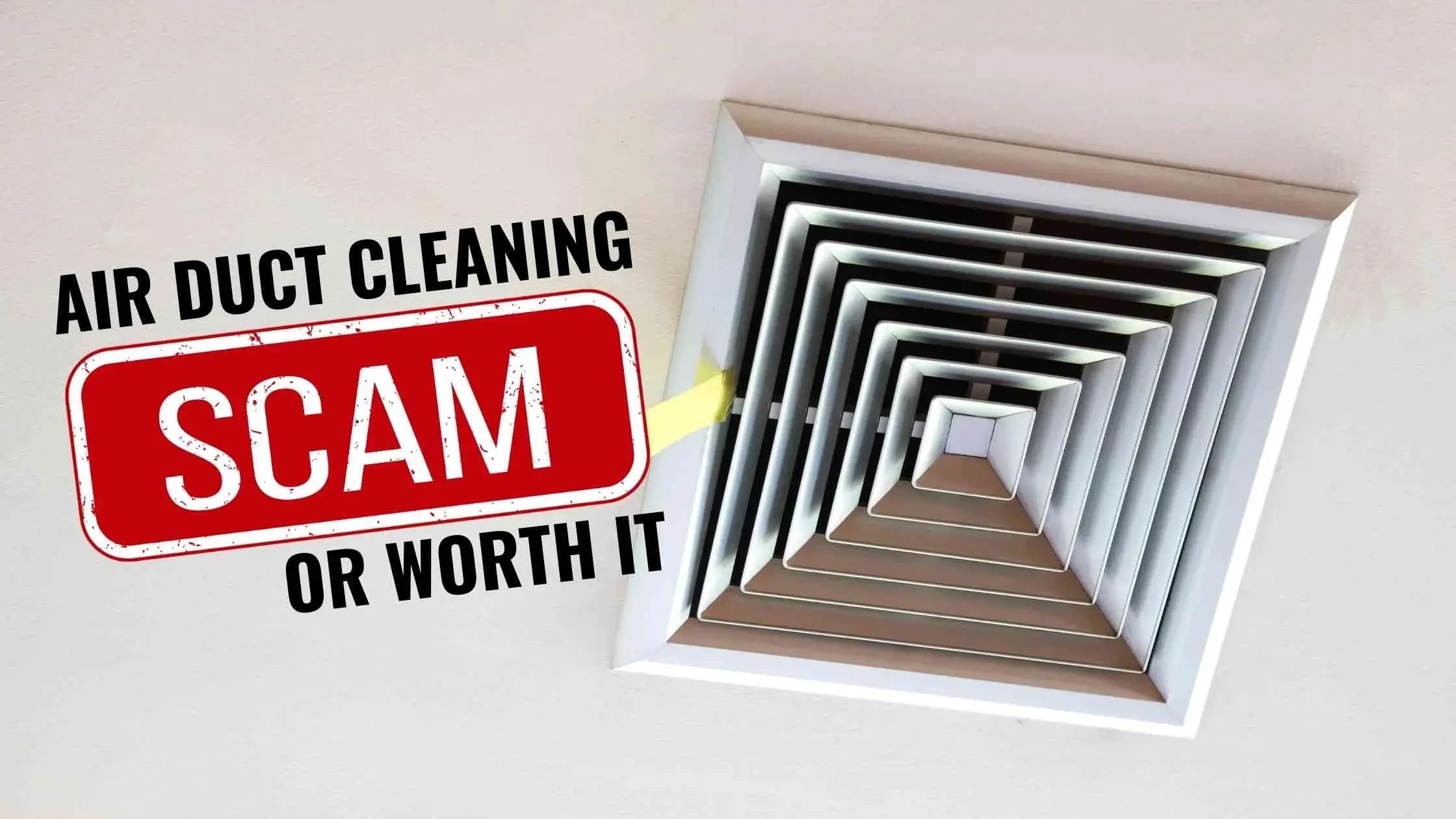
Is air duct cleaning a scam or worth it?
In recent years, there has been an increase in the popularity of air duct cleaning as commercial cleaning services proliferate. However, is the service legitimate, or is it a fraud?
Here are some facts to help you determine if you should clean your home's HVAC ducts.
Air Duct Cleaning Services
Professional duct cleaning services clear the supply, intake, and return ducts throughout your house using powerful blowers, vacuums, and brushes.
Along with the ducts, the air handler, registers, grilles, fans, motors, housings, and coils of the HVAC system should all be cleaned thoroughly.
Currently, no evidence supports the claim that regular duct cleaning lowers dust levels or enhances indoor air quality. Nonetheless, there is proof that unclean air handling units, motors, and heating and cooling coils can reduce the efficiency of your HVAC system.
Although cleaning the ducts by themselves doesn't seem required, there are situations in which cleaning the HVAC system and ductwork may be beneficial.
Do I Need the Ducts to Be Cleaned?
Due to higher concerns about indoor air quality, it is simple to persuade homeowners that their ducts require cleaning.
But there's only a need to clean ducts if they're really filthy. Regarding the matter, the EPA has a similar attitude and advises cleaning HVAC systems and ducts only when they are polluted. Duct cleaning is harmless if done properly. However, it's something other than what should be included in your routine house upkeep.
Your HVAC system and ducts typically don't need to be cleaned unless:
- Renovation: If you have renovated your house, you might require cleaning your ductwork, especially if there was asbestos abatement, lead paint removal, or a lot of dust. Improperly sealed ducting may harbor dangerous dust and debris.
- Mold: If there is noticeable mold growth within the ductwork, clean the ducts and the HVAC system.
- Animals: Get rid of any animals and clean the HVAC unit and ductwork if there is proof of animal infestation or nesting in your HVAC system or ducts.
- Disease: If someone in the house is suffering from an inexplicable allergy-related disease, and you've tried everything else to decontaminate your home, clean your ducts, or disinfect your air conditioner, you should investigate whether the HVAC system is the cause.
- Pollutants: If you discover debris, pet hair, or other contaminants in the room, or if you smell something odd, clean the ducts. Make an appointment with an expert if they persist even after you've cleaned and vacuumed the registers.
Ways To Avoid Duct Cleaning Scam
While legitimate, expert HVAC cleaning services are available, there are also fraudsters.
Don't be afraid to empty your pocketbook when a firm warns your house could be "unhealthy,"
If you choose to have the HVAC system and ducts in your house cleaned, keep in mind these pointers to stay away from scams:
- Full Service: Don't just clean the ducts; get the entire heating/cooling unit cleaned. In addition, you may need to ask the contractor about the cost of replacing your air ducts if they are too far gone.
- Quotations: Request written quotes from a minimum of three HVAC cleaning companies. A trustworthy business ought to offer a free estimate and examination.
- Beware of gimmicks: "$79 whole-house specials" advertisements are frauds. Only a few ducts will receive a quick vacuuming. At worst, you'll be lured into a considerably more costly plan. High-quality HVAC and air duct cleaning costs up to $500, takes many hours with specialized equipment and requires numerous people.
- References: Find out what was offered for the money by obtaining and verifying references in your community. Find out if the consumers were satisfied with the outcome as well.
- Certifications: The National Air Duct Cleaners Association, which establishes guidelines for HVAC system cleaning, should have the cleaning company's certification. Stay away from anybody claiming that duct cleaners are certified by the EPA. Check for required licensing and insurance; some states need a license for duct cleaning, while others do not.
- Check Standards: The firm should adhere to the rules established by the North American Insulation Manufacturers Association.
- Verify Outcomes: A reputable business will provide a thorough visual examination of the ductwork and HVAC system, either in person or by remote video. Make sure every duct is clean before making a payment, and demand an examination of the HVAC unit's inside.
- Avoid Sealants and Sprays: The EPA and NADCA warn against sprayed sealants or other hazardous chemicals within air ducts. Anti-microbial treatments and biocides are also questionable because the chemicals involved can be more harmful to your health than helpful. Currently, the EPA has not approved any chemicals for use within ducting.
- Don't be Misled: Because intake ducts (room ducts that return air to the heating/cooling unit) sometimes lack filters, they are more likely to be dirty than supply ducts (which bring conditioned air from the HVAC unit). Ensure any "before-and-after" pictures show the supply ducts, where clean air is vital.
- Avoid Steam Cleaning: Avoid cleaning ducts with steam or moisture.
Leave a Reply
Your email address will not be published